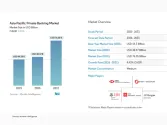
Even the faintest whiff of tainted foods can destroy businesses
By Tara Poole
Australia’s food and hospitality industry is reeling after customers of the QSR Soul Origin in Sydney’s CBD recently contracted scombroid poisoning from a cooked tuna salad. The potentially fatal food poisoning followed quickly after customers of Australian food manufacturer Patties Foods fell ill from Hepatitis A after eating Nanna’s Frozen Mixed Berries products.
The immediate focus is, quite rightly, on the health and wellbeing of the customers. But the knock-on effect to both businesses’ reputations and their own financial health cannot be ignored.
Food poisoning, or even the threat of it, cuts QSRs off at the knees. The response from customers, the media, social media, suppliers and commentators is swift and merciless. It does not matter if the QSR was not originally responsible for the food poisoning – as is the case with Soul Origin, which has clearly articulated that their own handling and quality control processes are above board – customers are quick to take their business elsewhere.
As with all crises that unfold within a QSR, it is better to be prepared than wait until it takes you by surprise. It is alarming how many QSR networks, franchise operations and sole traders do not have issues and crisis management plans in place. These plans are a set of protocols and processes that, when you are putting them together, can feel a little like overkill. It can feel as though you’re planning for an apocalypse that is not likely to happen.
However, if and when that apocalypse becomes real, a crisis management plan becomes a lifesaver.
Here are the top five tips for managing your communications through a QSR food-poisoning storm. They might not stop the onslaught of criticism, but they will give your teams some guidance on managing it.
1. Do your planning
As the scombroid poisoning incident in Sydney unfolds, many QSRs are wiping their brows. With this poignant reminder, it’s time to ask yourself: have you got an up-to-date issues and crisis management plan? If you have one, it’s time to take it off the shelf and blow the dust off it. Test your senior management team on what they might do in similar circumstances. Remind your staff of the processes, and don’t be afraid to do a bit of role-playing.
2. Who is doing the speaking?
When crisis hits a QSR, especially a food-related incident, often the first time anyone hears about it is when a news reporter rings a store or a piece is broadcast without the company’s knowledge. Make sure your planning clearly states who will do the talking from your brand’s perspective – settle on a calm, informed and educated senior voice from your business and stick with them as the spokesperson throughout the storm.
3. Keep an eye on social media
Reputations are destroyed quickly in social media. Rumours build upon rumours, and without addressing them they can become truths in the minds of your consumers. Ensure you have a strong social media team who knows your brand, clearly understands the issues and provides the right amount of response to online critics. Ensure your crisis management plan includes proactively using social media to keep your customers informed.
4. Accept blame if you need to
It is natural for people to become defensive when criticised. Food-poisoning incidents are fraught with emotion, particularly when people become very ill. When faced with criticism of your business practices, even if you know your practices are exemplary, resist the temptation to become defensive or blame other suppliers. The best way to manage an aggressive interview or customer enquiry is to listen to the complaint, repeat the complaint you’ve heard and offer a real solution, not motherhood statements. The Managing Director of Patties Food, Steve Chaur, did this to great effect in the media over the Nanna’s berries Hep A incident – demonstrating that he understood his customers’ concerns and he was prepared to seriously address them.
5. Review, review, review
When the crisis passes and the business is trying to re-establish itself, it is important to review the way the crisis was handled and to chart a clear path to recovering reputation. This review includes identifying the team members who need to be thanked for helping manage the crisis – whether handling communications or addressing supply-side and operational issues. It also includes thanking your customers for sticking by you. Look back at what you did right, what you did wrong and be brave enough to change if you need to.
Tara Poole is the founder of Riis Strategic Consulting. Tara has been working in the field of communications strategy and design for over twenty years, and assists businesses in harnessing communications to make a difference to their bottom line.























